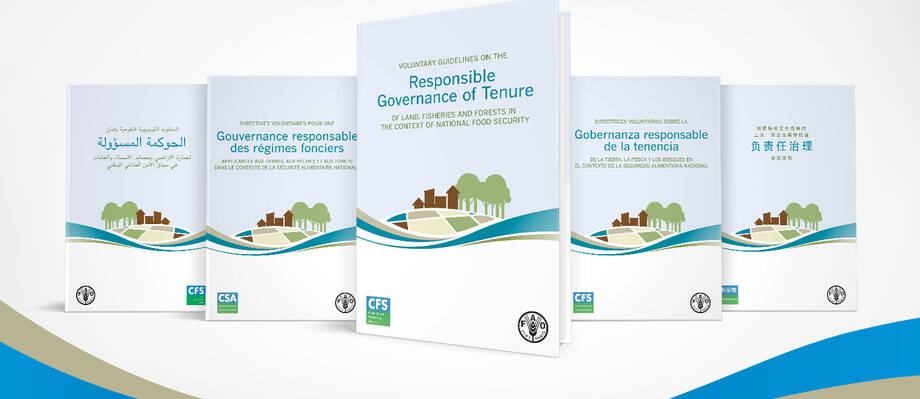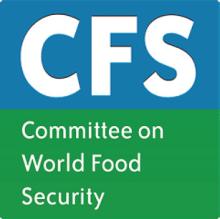Secure tenure rights and equitable access to land, fisheries and forests are critical means of eradicating hunger and poverty, supporting sustainable development and enhancing the environment.
SAVE THE DATE
27 May | 12:30 – 14:30 CET
The Committee on World Food Security’s Voluntary Guidelines on the Responsible Governance of Tenure of Land, Fisheries and Forests in the Context of National Food Security (CFS VGGT) – endorsed by CFS in May 2012 – serve as a highly-respected global reference document for practices regarding the governance of tenure. They provide a multilaterally-negotiated framework that countries can use when developing their own strategies, policies, legislation, programmes and activities. Often used in parallel with the CFS’s Principles for Responsible Investment in Agriculture and Food Systems (CFS RAI), the Guidelines offer a time-tested technical reference for governments, civil society, the private sector and others to address the complex issues associated with tenure and sustainable development.
Over the decade since adoption of these guidelines, a wealth of technical guidance, case studies, good practices, and lessons learnt have been amassed to strengthen responsible governance of tenure and to promote sustainable management of natural resources (specifically land, fisheries and forests).
Nevertheless, major challenges persist, including the COVID-19 pandemic, climate change, land degradation, biodiversity loss and ecosystem-disruption, water scarcity, forced migration, food insecurity, conflicts and others. Unfortunately, the world’s attention on tenure has slid down the global priority list over the years, undermining progress to foster sustainable food systems, strengthened respect for and protection of human rights, and improved livelihoods.
Improving the responsible governance of tenure of land, fisheries and forests is more necessary and urgent than ever. It is crucial that govenments and their development partners double down to remove remaining impediments to achieving inclusive, equitable and secure tenure rights and access to land and other natural resources.
Joint CFS/FAO High Level Event
As part of the 10th anniversary commemoration of the CFS VGGT, CFS and FAO’s land tenure unit will jointly organize a high-level event to assess lessons learned over the past ten years; remind policy makers and stakeholders of the potential these guidelines hold; and to re-confirm political, policy and financial commitments to accelerate their further implementation.
The event will be organized in a hybrid format, with high level speakers and participants (approximately 50 people) attending in-person in the Green Room at FAO HQ in Rome and other participants joining virtually via Zoom webinar, and webcast. Simulteneuous interpretation will be available in 6 UN languages: English, French, Spanish, Chinese, Russian, Arabic.
Objectives of the event
- Increase visibility and celebrate progress and achievements on responsible governance of tenure - 10 years after the CFS VGGT’s adoption;
- Critically reflect on obstacles encountered globally on VGGT’s uptake, political and economic challenges, and how to address them; and,
- Recommit to the VGGT guiding principles, in terms of funding and political support.
Visibility: CFS is looking to promote use of the VGGT at regional, national and local levels by spotlighting examples of their use to inspire updated policies, legislation and development programmes on tenure governance, while identifying opportunities to continue supporting other partners to see the value of the Guidelines.
Reflection: CFS, FAO, and its partners wish to highlight progress made in the application of the VGGT while exploring options for generating secure tenure rights for more food producers and achieving impact at scale. This event is an opportunity to re-focus attention on land tenure issues, explore obstacles to broader VGGT uptake, highlight success stories, and promote further progress and commitment.
Commitments: The last goal of this event is to mobilize political, technical and financial re-commitments to the VGGT. FAO and CFS will engage member countries, the private sector, civil society and other key land partners to solicit such recommitments.



